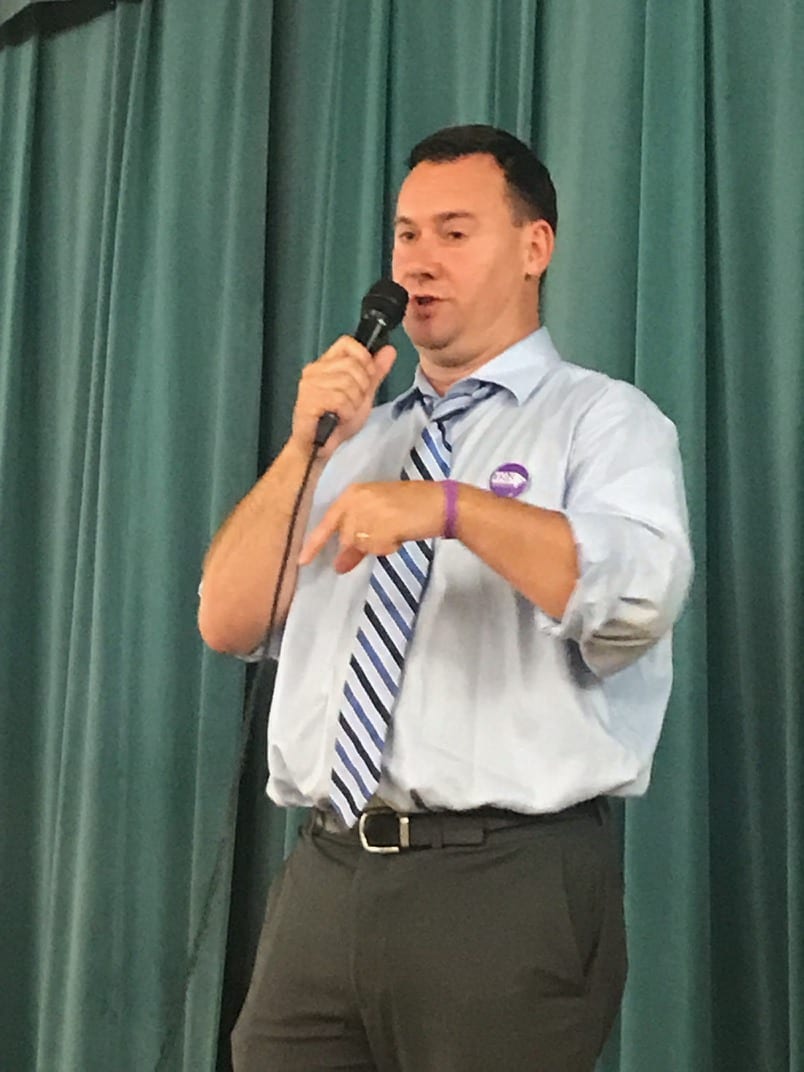PEABODY — It all comes down to money.
That was the message Mayor Edward Bettencourt Jr. delivered to a nervous crowd Tuesday night who fear construction of a cell tower in their South Peabody neighborhood.
More than 150 residents filled the Captain Samuel Brown Elementary School cafeteria to get an update on the Verizon Wireless lawsuit against the city.
In March, Land Court Judge Jennifer Roberts sided with the telecommunications giant’s proposal to build a 120-foot tower at Michael’s Limousine Co. on Lynn Street.
The judge ruled the city’s denial of a permit prohibits the utility from providing cell service and violates the Telecommunications Act of 1996. She ordered the City Council to “take all necessary actions to remove any further impediments to the construction of a proposed cell tower.”
Observers say the city has few options. Federal law puts cell phone providers in the driver’s seat to provide service.
Still, the city appealed the ruling to the Massachusetts Appeals Court last month.
In the meantime, Bettencourt told the audience that Verizon and the Peabody Municipal Light Plant (PMLP), the city’s electric utility company, are in discussions over an alternative. Instead of an unsightly tower, the utility would lease space on its 14 poles to Verizon for 12-inch canisters designed to improve wireless service.
But those negotiations are at an impasse.
At issue is how much Verizon will pay PMLP.
There are two fees under discussion. Federal law allows the utility to charge an initial, one-time application fee. The FCC recommends $500 per pole or $7,000.
Verizon wants to pay less and PMLP wants more.
The second is an annual fee to lease the poles. The FCC recommends $270 per pole or $3,780 annually.
Verizon wants a discount on that number while PMLP is seeking a higher amount.
“This negotiation is the first for Verizon and they don’t want to set a precedent with a high number they will have to pay throughout the U.S.,” Bettencourt said. “And PMLP wants fair market value.”
One thing is clear. It could take up to two years before a final decision is made in Appeals Court.
“I know how important this is to you,” Bettencourt said to applause. “I wouldn’t want a cell tower in my neighborhood. I plan to see this through with you. “

